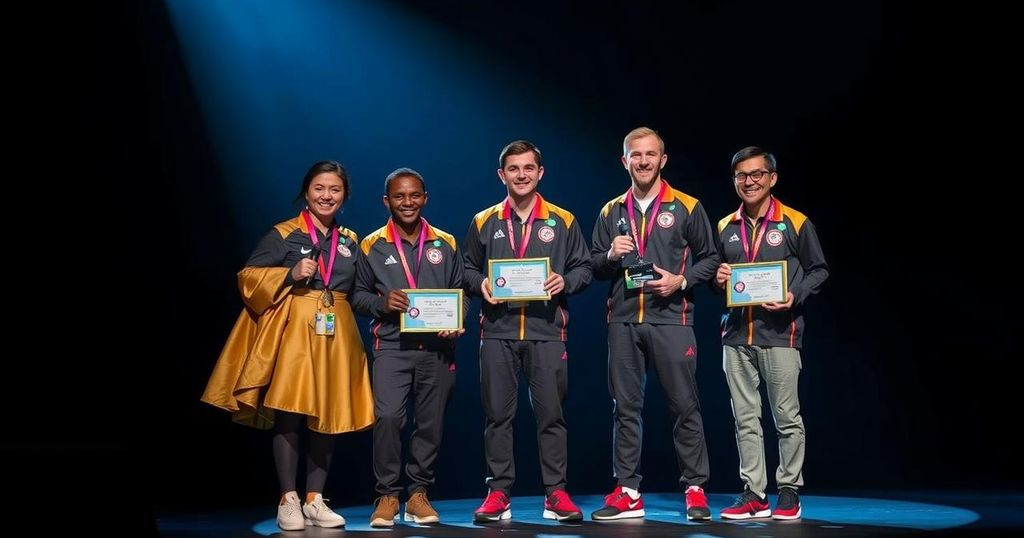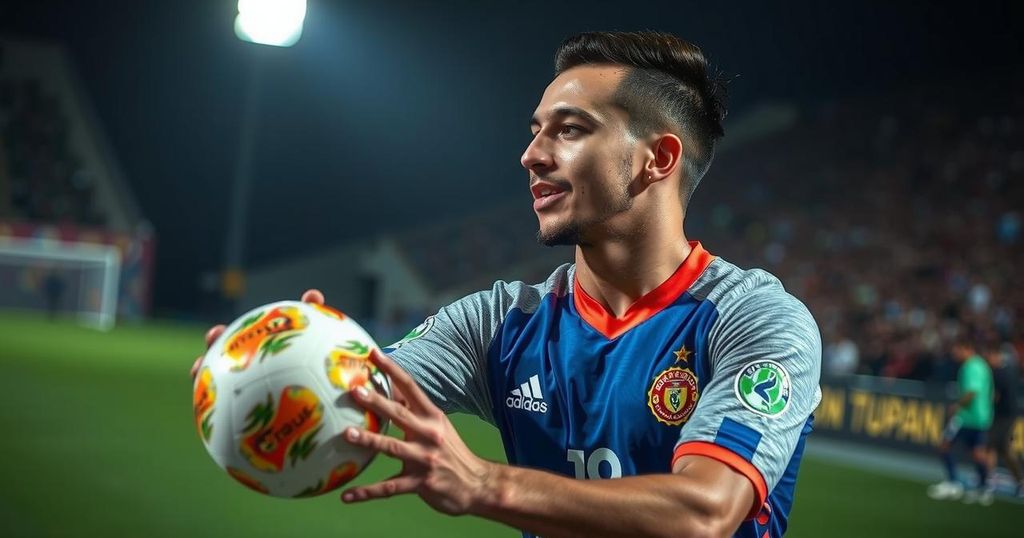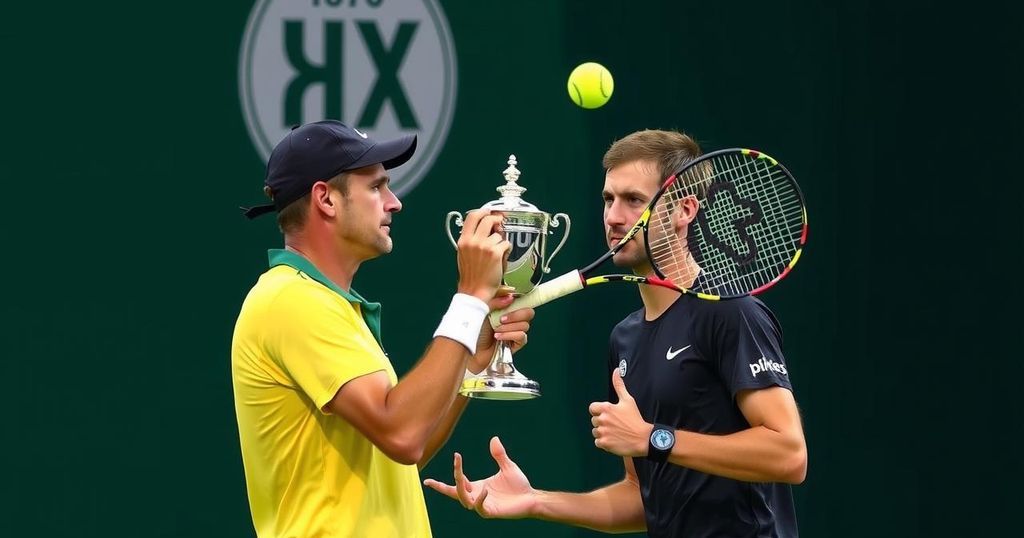IOC Refugee Olympic Team Honored with Spotlight Award by Human Rights First
The Human Rights First presented the inaugural Spotlight Award to the Refugee Olympic Team for Paris 2024, recognizing their commitment to human rights and advocacy for refugee athletes. Yiech Pur Biel emphasized the team’s role in supporting refugee athletes and changing perceptions about displaced individuals worldwide.
The inaugural Spotlight Award presented by Human Rights First was awarded to the Refugee Olympic Team for the Paris 2024 Games during a ceremony held last week in New York City. This recognition honors individuals and organizations that demonstrate a commitment to human rights and advocate earnestly for marginalized communities. The IOC Refugee Olympic Team, comprising 37 athletes supported by 15 National Olympic Committees, will compete in 12 different sports at the Paris 2024 Olympic Games. This team exemplifies the enriching contribution of refugees to society on a global stage. Yiech Pur Biel, an Olympic athlete and member of the Olympic Refuge Foundation (ORF) Board, accepted the award on behalf of the team and highlighted its significance. “The purpose of this team, then and now, is twofold. To support refugee athletes to continue their athletic career and compete on the world stage. And secondly, to bring attention to and change views towards the 120 million people across the globe who, like me, have been forced to flee their homes,” he conveyed. Biel, who was part of the inaugural Refugee Olympic Team at the Rio 2016 Games, expressed his pride in being part of a collective united under the Olympic flag. He remarked, “Every single one of these athletes has a different story – they speak different languages, have different cultures and come from different countries. But they come together under one flag, the Olympic flag. They are joined together through solidarity and their love of sport.” The Olympic Refuge Foundation, which operates year-round beyond the Olympic Games, plays a critical role in supporting young individuals affected by displacement. Biel underscored the Foundation’s efforts, stating, “When the lights go off, the stadiums are packed up and the crowds go home, the Olympic Refuge Foundation continues to support nearly half-a-million young displaced people across the globe through sport 365 days a year to improve their mental health and wellbeing, and to find belonging again in their new communities.” The IOC, through the establishment of the Olympic Refuge Foundation, aims to support displaced populations and uphold the principle of access to sport as a fundamental human right. The Refugee Olympic Team serves as a beacon of hope for young people affected by displacement, advocating for their rights to participate in sports. Biel concluded his address at the ceremony with a clarion call to action, emphasizing the need for continued support for refugee athletes and the importance of fostering a sense of belonging through sports.
The Refugee Olympic Team represents athletes who have been displaced due to conflict, persecution, or violence. Established by the International Olympic Committee (IOC), the team aims to provide these talented individuals a chance to compete at the highest levels while raising awareness about the plight of refugees worldwide. The Olympic Refuge Foundation, which supports these athletes year-round, plays a significant role in ensuring that displaced youth are able to engage with sport, which serves not only as a physical outlet but also as a mechanism for psychological support and community integration.
The Refugee Olympic Team’s recognition by Human Rights First exemplifies the enduring spirit of resilience among displaced individuals and the transformative power of sport. By receiving the Spotlight Award, they underscore the dual mission of supporting refugee athletes and advocating for a shift in societal perspectives towards the 120 million refugees globally. The narrative of these athletes, united under the Olympic banner, serves to inspire a collective response to the humanitarian crises they represent, reaffirming the fundamental human right to sport and inclusion in society.
Original Source: olympics.com








Post Comment